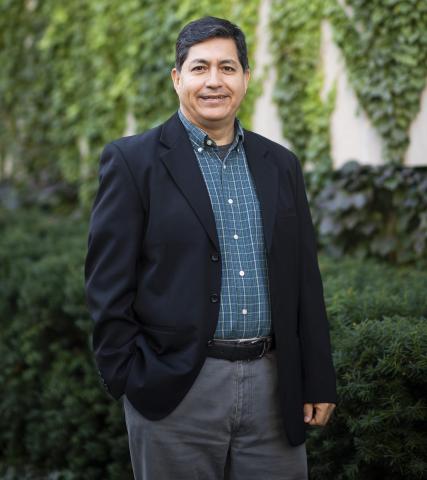Equity, diversity, and inclusion initiatives often do not go far enough.

Learning
Just over two years ago, the Equity, Diversity, Inclusion, and Decolonization Advisory Committee of the Federation for the Humanities and Social Sciences published its final report titled Igniting Change. At around the same time, I was invited to become the chair of the Diversity and Inclusion Committee for the Canadian Theological Society. I accepted the invitation, and quickly, with a group of other volunteer faculty and students, we crafted our mandate and renamed ourselves the Dignity, Equity, and Justice Committee, which includes the active work of highlighting racialized and minoritized peoples in the Canadian theological context. To better articulate our mandate, I consulted the Igniting Change report along with the report on theology and race of the Society for the Study of Theology.*
I was pleasantly surprised to find that some organizations are working intentionally against racialized injustice, including by naming the legacy of colonization. I concluded that the primary goal behind organizations adopting an equity, diversity, and inclusion approach is to create an environment of nondiscrimination and to encourage the participation of people who have historically been marginalized, particularly people who identify as Indigenous, Black, or from a variety of other ethnocultural traditions.
No doubt the desire to reduce structures of discrimination may be behind organizational attempts to create spaces for greater diversity and work toward equity. In fact, I have participated in educational workshops where employees are challenged to confront racial bias and discriminatory attitudes, and to identify White supremacy within the ethos of an institution. But the impetus behind diversity, equity, and inclusion policies is complicated. Sometimes using the language of equity, diversity, and inclusion can undermine the experiences of racialized peoples and communities. How do we resolve this paradox and move anti-racism work forward?
Let’s explore the problem. Much like our federal government’s official policy of multiculturalism, I am concerned that adopting equity, diversity, and inclusion may give the impression that because certain policies are in place, we don’t need to talk about racism anymore. As I observe it, the greatest danger is to view equity, diversity, and inclusion policies as a form of “solution” for racial issues. The unintended consequence can be to silence the concrete experiences of racism and discrimination that many racialized peoples continue to experience on a daily basis. If racism is considered to be “solved” through policies like this, then the ongoing reality of racism becomes an inconvenient truth.
I don’t mean to oppose important initiatives to educate people in matters of anti-racism and racial discrimination. I have participated in some of those educational workshops and taught in some of them myself, and I have seen how people can shift their perception and understanding of racialized peoples and their attitudes toward them.
And yet, a focus on equity, diversity, and inclusion, even decolonization, as in the Igniting Change report, does not go deep enough in dealing with the reality of racial biases, racially based discrimination, and White supremacy. The more I think about the dynamics of racism, the more convinced I become that racial discriminatory attitudes and their ideological undercurrents stem from the far more complicated and insidious legacy of colonization. This legacy, which some scholars call “coloniality,” means that the world is organized hierarchically, that human physical and cultural differences are catalogued in every context. The resulting value system gave birth to and continues to sustain the myth of White supremacy. And it is this racialized hierarchical structure at the root of coloniality that impacts even our own perceptions of each other and how we interact with those who are racialized in society, in our places of employment, in our schools, and in our churches.
Faith Reflection
Please pray with me:
Gracious Source of Wisdom, may we be inspired to probe deeper.
Creative Force of Disruption, may we learn to remain unsettled as we examine ourselves.
Erupting Breath of Discomfort, may we be unwilling to be content with how things are.
Energizing Divine Spirit, may your force of life move us to strive for transformation.
Guide us as we imagine the possibilities for a world otherwise;
help us to confront the forces of antilife, of death and destruction;
and grant us the compassion, humility, and determination to offer your love to all.
Amen
Living It Out
We are all implicated in our current social reality of racialization!
At the same time, as long as we leave the legacy of colonization unexamined, our discussion of racism and anti-racist work will continue to be limited to describing and “resolving” the symptoms of racism and not the root causes. These causes include structures of White supremacy in intellectual, social, and ecclesial spheres. As helpful as they are, affirmative action, equity, dignity, diversity, and inclusion initiatives and similar approaches often do not go far enough.
As long as we fail to examine the underlying systems of racialization and the colonial value system we are conditioned to, we will remain unable to address the ideology that supports excluding and marginalizing entire sectors of Canadian society. In crafting policies, let us incorporate a preferential option for those who have been colonized and continue to experience the negative effects of colonization. Figuring out what this preferential option might look like in our policies is the next stage in deepening anti-racist work.
If you are creating policies with and for your community of faith or regional council, how might this be demonstrated for you?
—Néstor Medina (he/him) is Associate Professor of Religious Ethics at Emmanuel College, Victoria University, University of Toronto. He engages ethics from contextual, liberationist, intercultural, and post/decolonial perspectives. He explores the ethical implications of religious/theological debates, and how these shape concrete social structures and notions of ethno-racial and cultural identity.